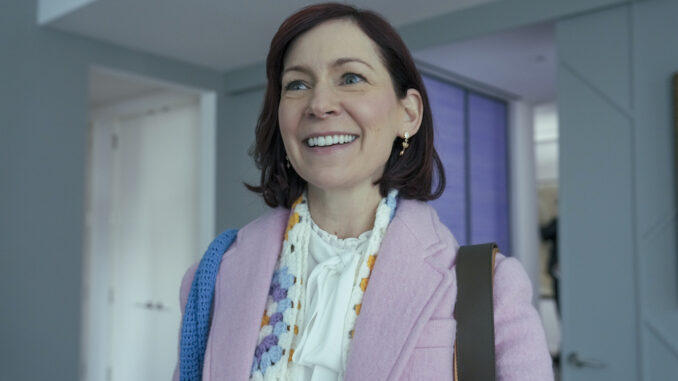
The Subtle Spark: Why Carrie Preston Deserves the Cinematic Spotlight
Carrie Preston is a name that, while familiar to many, often evokes a sense of “Oh, I know her! She’s so good!” rather than instant recognition of a leading lady. This is, perhaps, a lamentable truth. While Preston has carved a niche for herself in the demanding landscape of television, with memorable roles like Arlene Fowler in "True Blood" and Elsbeth Tascioni in "The Good Wife" and its spin-off "The Good Fight," some critics lament the relative paucity of significant cinematic opportunities offered to her, despite her undeniable talent and the unique, captivating presence she brings to every performance.
Preston possesses a rare quality – an ability to imbue even the most seemingly ordinary character with a depth and complexity that draws the viewer in. She has mastered the art of the subtle spark, the quiet flicker of emotion that hints at a rich inner life simmering beneath the surface. This is evident even in smaller roles; a momentary glance, a carefully chosen word, a subtle shift in posture – all work in concert to create a believable and compelling individual. She’s a character actor in the truest sense, disappearing into the role while simultaneously leaving an indelible mark on the audience.
One of the key reasons why Preston's absence from leading cinematic roles feels particularly frustrating is her versatility. She isn't confined to a single type or genre. Whether playing the down-to-earth, fiercely loyal waitress in "True Blood," the brilliant and eccentric lawyer with a penchant for quirkiness in "The Good Wife," or the nuanced and flawed Cyndi Lauper in "When We Rise," Preston consistently demonstrates a remarkable range. She can effortlessly navigate the complexities of dramatic roles, delivering emotionally resonant performances with raw authenticity, while also showcasing a sharp comedic wit and impeccable timing. This adaptability makes her a chameleon on screen, capable of transforming into any character, any world, any genre.
Why, then, has Hollywood seemingly hesitated to fully embrace her cinematic potential? Perhaps it’s the industry’s inherent preference for youthful ingenues or the lingering effects of typecasting, despite her demonstrable ability to defy expectations. Perhaps it's simply a matter of luck and timing, a series of missed opportunities that have prevented her from achieving the widespread recognition she deserves. Whatever the reason, the lack of prominent cinematic roles for Preston feels like a disservice to her talent and a loss for audiences who crave authentic and compelling storytelling.
To imagine Carrie Preston leading a film is to envision a world of possibilities. Picture her in a complex character study, navigating the intricacies of grief or the complexities of a fraught relationship. Envision her as a brilliant scientist battling against adversity, or a historical figure brought to life with nuance and empathy. Her ability to portray both strength and vulnerability, combined with her inherent intelligence and captivating screen presence, makes her the perfect candidate for a range of roles that are currently being offered to other, perhaps less deserving, actors.
Ultimately, the regret that Carrie Preston hasn't received more significant cinematic opportunities stems from the awareness of untapped potential. She possesses the talent, the versatility, and the captivating presence to not only excel in leading roles but also to elevate the projects she is a part of. It is a hope, rather than a resignation, that the future will bring her the recognition she has earned, allowing her subtle spark to ignite the cinematic landscape and illuminate stories that resonate with audiences long after the credits roll. Perhaps, in time, the industry will finally recognize the invaluable asset it has in Carrie Preston and grant her the platform to showcase the full extent of her prodigious talent. The cinema would undoubtedly be richer for it.
